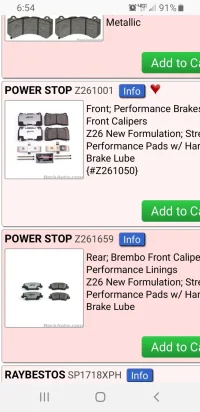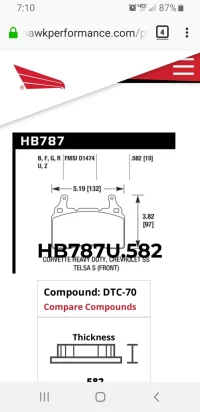SpaceGhost
Active Member
- Joined
- Mar 4, 2019
- Messages
- 119
- Reaction score
- 44
- Points
- 28
Q. Well, if warped rotors aren’t the problem, why is everyone getting the problem fixed by getting their rotors turned or replaced?
A. Because that actually does fix the problem, at least temporarily. And dealers don’t care because Kia pays them for the work, and Kia wants to make the owners of their first big-selling premium car happy. But that’s like declaring your car a total loss because you got a scrape on the bumper. Replacing the bumper is a much easier, cheaper, and simpler option. And likewise, there is an easier fix for the brake vibration too.
Q. Okay, so if the problem isn’t warped rotors, what is it?
A. Pad deposits.
Q. Wait, what are pad deposits?
A. When you brake hard repeatedly due to spirited driving, or apply the brakes for a sustained period of time as you might if you’re coming down a really big hill, your brakes heat up. Not just the rotors -- also the fluid, which can cause total brake failure in some cases, but more importantly, the pads. As the pads heat up, they soften. Once they are hot enough, large amounts of semi-liquid pad material start coming off and sticking to the rotors. This material stays on the rotors even after the brakes cool.
Q. So why does this cause brake vibration?
A. Because brake vibration is caused by rotor runout (different thicknesses of the rotors at different points around their circumference). This can be due to warping (which we’ve already established is unlikely to happen), due to rust on the rotors that accumulates while the car is sitting and that is scraped off unevenly once the car is driven again, or due to pad material being deposited unevenly around the circumference (thicker in some places, thinner in others).
Q. Why is it unevenly deposited, though?
A. The most common cause is that you heat the pads up, and then come to a stop at a light and keep the brake pedal depressed. It can also be caused by dragging your brakes at low speeds (e.g. inching forward at a light or in traffic). Please note that this scenario (heating up the brakes and then applying them at low speeds and/or keeping them applied) is the most likely reason this problem occurs.
If this were actually true why wouldn't all Stingers have this issue? My car has it. I have only driven this car normally. I live near Boston there are no hills. I have not hit the brakes hard at all. if the way I'm driving this car is over heating the brakes then the brakes are badly designed









